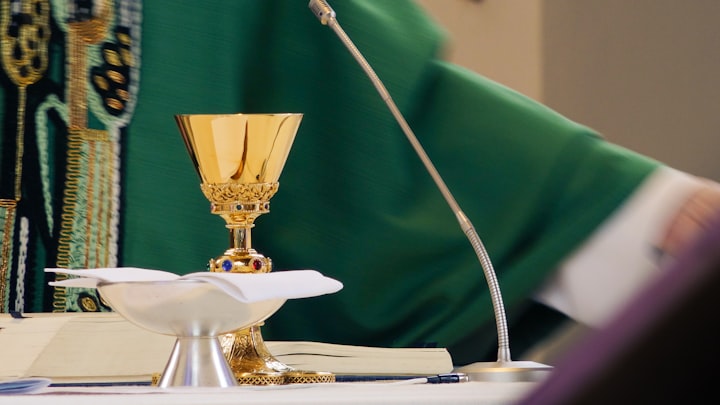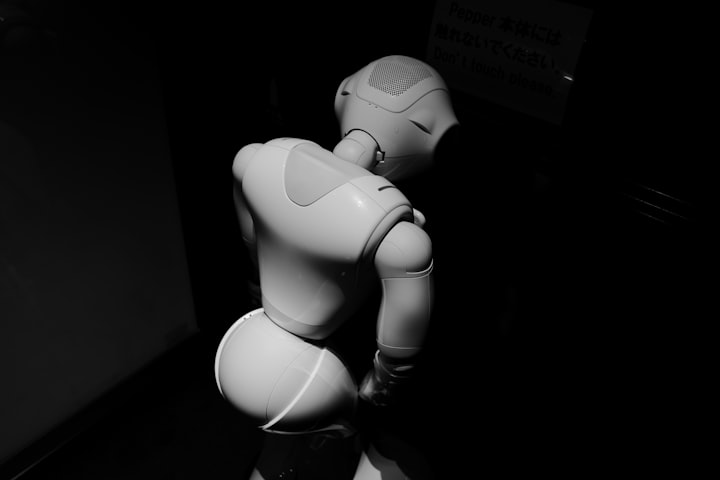
Invisibility was everything I thought it would be.
————————————————————-
A man once explained away racism and privilege by stating, “all races have an underclass.”
What he didn’t understand is that even the underclasses have a hierarchy.
No place was this made more evident than on the tiny Caribbean island of Grenada.
It was five years after emancipation, and yet not much had changed for the island's underclasses.
I laughed mirthlessly as I thought of the Irish catholic priests who had come to the island.
They were the underclass in their country, but on this tiny island, they had ascended.
Slavery was still a shadow that occupied the brightest spots for most of the island's residents but where the priests thrived.
These priests were hurriedly sent to civilize the savages and gather more followers who would worship men, saints, they were called.
There were no qualifications beyond a willingness to travel to an island filled with black bodies and an unforgiving sun.
That is how I became an acolyte, just one generation after the emancipation proclamation of August 1st, 1834; I was speaking perfect Latin and leading the priest in my parish.
The emancipation proclamation promised the end of slavery, but it did so in name only.
The plantations still thrived, and someone had to cultivate the land.
Surely it would not be the underclass from other countries who had come to seek their fortune in the new world!
The indentured Indian and Irish servants soon became owners of some of the plantations abandoned by enslavers, tired of the verdant but harsh landscape.
A new kind of slavery continued. Pennies were paid to those who worked the land. They were still beaten regularly and had to create gardens on their small plots of land to feed their families.
I lived in the countryside, an hour away from the church where I rendered my services.
Many questioned my choices as I have up the chance to live in a contemporary house on the church’s sprawling property.
They, however, didn’t realize my ultimate goal was always invisibility.
Rather than seemingly setting myself apart from my brethren. I remained in the countryside returning home at the same hour as others who toiled On the plantation.
On Sundays everyone was given respite.
For me, however, it was a day I translated long services and did various tasks for the priests.
My proximity and seeming fusion with the priests allowed me invisibility.
With that gift, that power; I used the funds I earned from my job as an acolyte to buy adjoining plots of land slowly.
No one questioned a black man buying so much land because they saw me as nothing but a limb. Or perhaps a finger, a brainless extension of the priests.
Indeed I must be buying land on their behalf.
Soon I had amassed a large swath of land, much of it close to the ocean. I wanted to reclaim some of this land for my maternal great-grandfather.
He was an Arawak, a legend.
He had leapt over a cliff with the rest of his tribe rather than surrender to the French colonial forces.
He became a legend, for he survived the 40 feet drop. He lived in a cave and later an old barn.
He was only a boy, but he survived.
The French colonial forces were cruel and kept their heat weakened horses in the old barn to die. He’d secretly nurse them to health and eventually had a healthy horse he named Wind.
In between hiding in the old barn and befriending horses, my grandfather learned French.
When the first enslaved people arrived on the island, he blended in with them. After all what does an African look like to colonial powers.
Soon he and my great-grandmother, an enslaved woman from Cameroon, were married.
They both had an aptitude for language. Therefore their children spoke Kari'nja, Ewondo, French, and after the British overthrew the French, they learned English as well.
With such a pedigree, I was always destined for great things, even if they were to be cooked in the shadows.
The gift and value of invisibility was learned early in my family.
We were mighty, unassuming silhouettes.
My father saw the influence and power the churches held, and so he brought me a Latin dictionary he borrowed from one of the houses where he was a groundskeeper.
Except for Sunday’s I would daily sit at a table and translate English into Latin.
As my father listened, I read by lamplight until my words were perfect.
I revealed my ability only when the priest was in danger of being sent back due to his inability to understand or recite even the most basic Latin words.
My father had approached the priest and spoken in hush tones. I stood back respectfully, invisibly until I was called.
The priest asked me to recite some phrases; I did so perfectly.
The priest was delighted, and my father negotiated a handsome salary on my behalf.
The words I muttered during services meant nothing to me. I did not worship their gods.
I viewed them the same way I regarded a machete, as nothing but a tool.
It was the 31st of July, and I could barely contain my excitement.
On the very next day, I would purchase the land. The land that not only held the old barn where my grandfather survived with his horses but also the piece of land where everyone he loved had leapt to their death.
The following day I quickly dressed and headed out on my donkey Jack.
At the open-air market overlooking the endless ocean, I met with MacLean.
MacLean was a plantation owner who had amassed land throughout the small island.
My grandmother was enslaved on one of his the plantations he inherited from his father.
It took everything in me not to vomit as I looked upon his cruel face.
“Ah, you must be here on Father Patrick’s behalf.”
“I am here to buy two plots of land you posted for sale on the church’s bulletin board.”
“The hill from which the savage Carib people leapt will make a fine church.” MacLean bellowed.
“There have certainly been many rumors swirling about the fate of the land, I have the monies in hand, and I am ready to sign the deed.”
MacLean grunted, “Father Patrick must really trust you.”
“I do what I can,” I responded, my feigned humility belying the disgust and impatience I felt.
I handed the sack of gold to MacLean, he signed his name, and I dipped a pen in ink and wrote mine.
Waves crashed, and wind dried the ink instantly.
It was done.
I carefully put the papers in my bag and mounted Jack.
As I rode away from the market, I thought of my great-grandfather, of my fathers; of all the gifts they had given me, invisibility was supreme.
About the Creator
L
“By hell there is nothing you can do that you want and by heaven you are going to do it anyway”
Anne Spencer






Comments
There are no comments for this story
Be the first to respond and start the conversation.